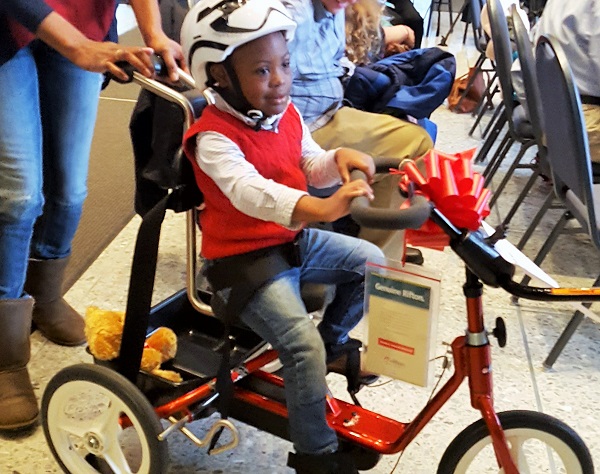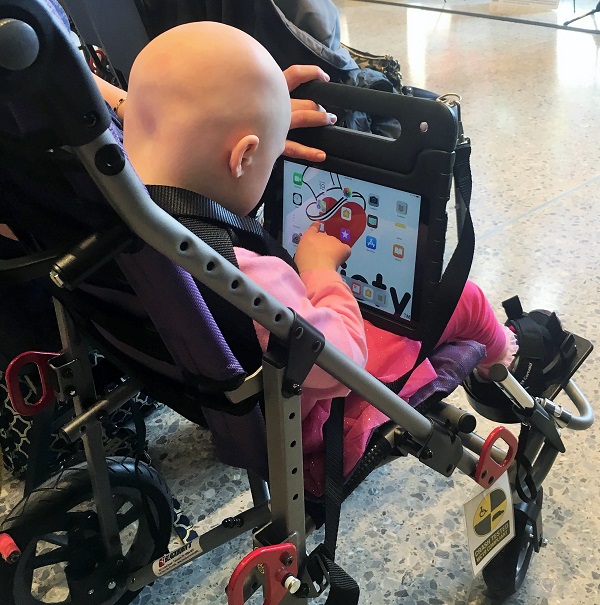
United Steelworkers and Variety in search of 500 kids needing life-changing equipment
It was the best feeling in the world when Ariel Winfield, 12, heard her little brother mutter, “I love you,” for the first time.
Just six months ago, Tyler, who has autism spectrum disorder, could only say a few words.
Then he received a free communication device from Variety – The Children’s Charity.
Through the device, the six-year-old could ask for his favorite indulgences – purple pop and strawberry milk – and he started to gain confidence. The frustration of not being able to get what he wanted soon subsided. He heard the words and eventually began to talk on his own.
Today, the device is just a backup. Tyler has found his voice.
“It’s changed the world for everyone,” says Ariel, of Trafford.
With the help of a $500,000 fundraising effort from United Steelworkers International, Variety – The Children’s Charity has funds to give away 500 adaptive bikes, adaptive strollers and communication devices to kids across a 54-county region in Pennsylvania and West Virginia.
All they need is to identify kids in need of the specialized equipment. Some have Down syndrome, spina bifida or cerebral palsy.
“We’re giving kids a chance to do things with their siblings instead of sitting on the porch and watching,” says Charlie LaVallee, Variety’s chief executive officer, who tells story after story of families whose lives were changed by a bike, stroller or communication device.

Since November 2012, 2,500 pieces of this life-changing equipment – totaling almost $4 million – have been sponsored. In December alone, 66 adaptive bikes, strollers and communication devices were given away.
And the donations keep on coming.
Individually, an adaptive bike costs $1,800 to sponsor; an adaptive stroller, $1,500; and a communication device, $1,200.
To qualify, families must earn less than $120,000 annually. (However, 55 percent of those who have received the equipment have lived at or below the poverty line.) In addition, a physical therapist, occupational therapist or speech and language pathologist must indicate the child can ride or use the device.
LaVallee hopes the program can inspire change across the nation.
“I’d like to find 2,000 kids,” he says. “I want to create awareness. Let’s find the kids that need this, and we will find the funds.”
Watching a kid who never thought they’d be able to ride a bike pedal for the first time is a life-altering experience, LaVallee says.
He tells the story of a young girl who was so excited to ride a bike for the first time that she painted her nails to match. And the girl who called her dad from the back of a bike to tell him: “I just rode a bike for the very first time. Are you proud of me?” Only to get off the phone with a smile and giggle and exclaim, “He says he’s proud of me.”
Max Petrof, 10, of Ligonier, who has cerebral palsy, received an adaptive bike two years ago and an adaptive stroller just a few weeks ago.
The bike has given Max freedom to play with other kids. His twin brother, Jack, pushes him in the stroller into school every day.
“With all of the limitations that he faces in a day, this gives him a chance to be a person,” says mom Anne Petrof. “He has the opportunity to be the person that he wants to be.”